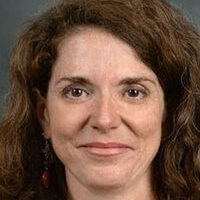CHICAGO — If you thought every woman and man that served in the U.S. military and honorably discharged was guaranteed health care as a veteran, you would be wrong.
Funding shortages still limit the extent and duration of care, and appropriations for the VA is up to the yearly “discretion” of Congress and the president.
But a coalition of veterans groups here wants to change all that by convincing the federal government to adopt “mandatory full funding” of Veterans Affairs. The group, Coalition of Veterans Organizations (CVO), fights for health care and other benefits due individual veterans while taking on the reform of VA funding.
“VA provides excellent health care and is the largest health care provider in the country,” said Vietnam veteran Bruce Parry at a recent public forum here. “The problem is the bureaucracy, whose purpose is to keep veterans from their benefits.”
Parry, who chairs the Chicago-based CVO, said the policy of putting walls between veterans and their access to health care comes from the top. Former VA Secretary James Nicholson, a Bush appointee, reportedly told VA employees to “keep these veterans from their benefits,” he said.
Nicholson was forced to resign in the wake of the Pentagon-run Walter Reed Hospital scandal.
Parry said there is no shortage of VA horror stories as a result of this policy. There is a backlog of hundreds of thousands of veterans whose applications haven’t been processed or are on appeal with no decision, he said. “Many die before a benefit decision is even made.”
Iraq and Afghanistan combat veterans face some of the biggest hurdles. The VA promises two years of guaranteed health care for soldiers returning from the Middle East. But after those two years, Parry said, they are out of luck.
“Most veterans don’t go to the VA until 10 or more years later,” he said. “Some are sick of the military and transfer that to the VA and don’t want anything to do with it. Some combat-related illnesses don’t show up until years later.”
But the worst is the denial of mental health benefits, especially for post-traumatic stress disorder and brain trauma. One Iraq vet, Parry said, was denied mental health care for PTSD because the military said he had a pre-existing condition.
Because of the advances in medical technology, the ratio of survivors wounded in combat to those killed has risen dramatically. During the Korean War, for example, there were three wounded soldiers for every one killed in combat. Now the ratio is 16 to one. Soldiers are returning with catastrophic wounds that not only require medical attention and rehabilitation therapy, but financial support because they can’t return to their previous jobs.
In 2003, the VA established eight categories of VA eligibility. The eighth category of veterans is “not allowed to enroll for VA health care.” Parry said these categories not only make it easier to deny benefits, but also help keep veterans divided and pitted against each other. There are 23 million veterans in the U.S. and 1 million in Illinois, a state which ranks among the lowest for benefits nationally.
CVO is working to put a referendum on the 2008 presidential ballot in Cook County, Ill., and the whole state that would allow voters to “advise” Congress that VA funding should be mandatory, as in other entitlement programs like Social Security. CVO not only participates in direct-action campaigns to change bureaucratic procedures, Parry said, but also works to change laws and have an impact on the political level.
The proposed ballot referendum reads, “Shall the federal government be required to adopt mandatory full funding of the Department of Veterans Affairs for the purpose of ensuring that all eligible honorably discharged U.S. veterans receive quality and accessible health care and related services?”
Parry’s group works with other health care coalitions, including those who support single-payer plans. “We are fighting for free universal health care for all veterans. Although we don’t like to use the word ‘free’ since we have already paid for it through our service,” he said.
Ignoring the health care fight for veterans contributes to a rising cost of health care for all, he said. It also contributes to homelessness, poverty and joblessness.
Parry said it was beyond him to comment on the “human costs of war,” the title of the public forum. It’s impossible to tally the human costs of war, he said.
“How war affects warriors, often for life, and their families — psychologically and financially,” is just one aspect. But the affect of war on society is to sap its lifeblood and to foment a culture of hatred and fear, he said.
talbano @pww.org









Comments